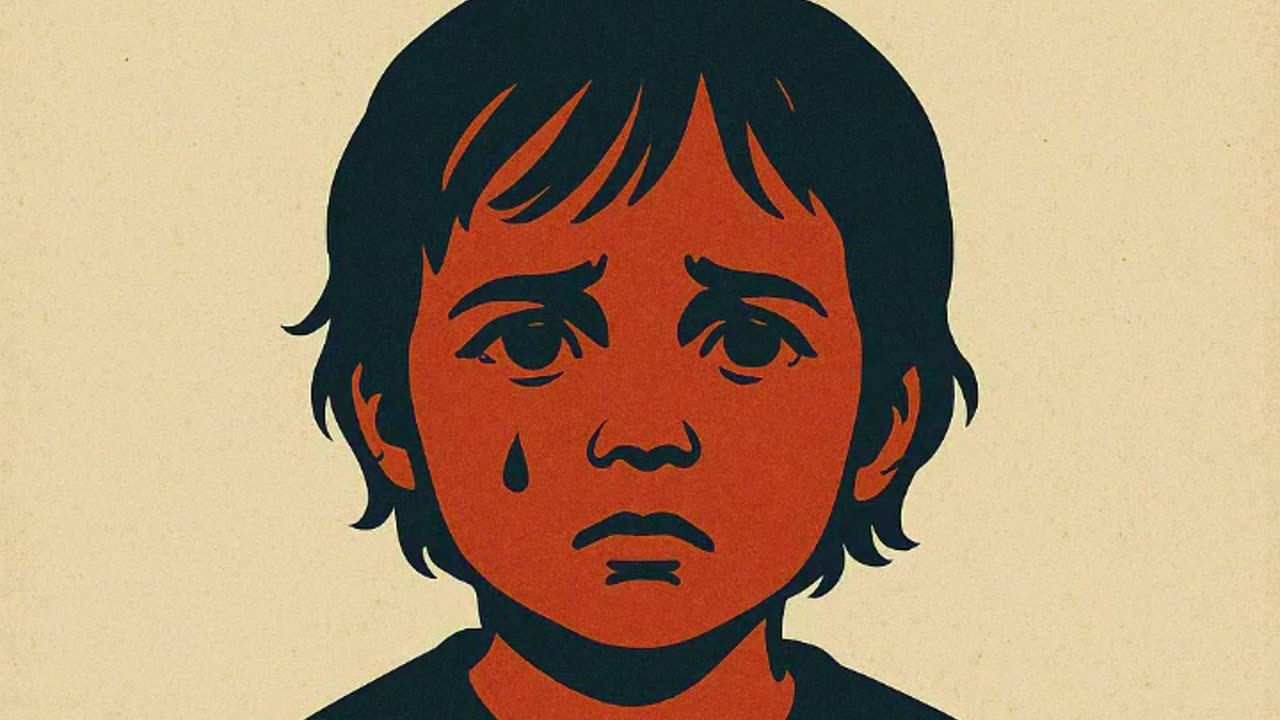Premium Only Content

Every Child is Mine.
Caring for Children: A Global Responsibility or a National Priority?
In a recent YouTube live discussion about the treatment of refugees in the UK, a statement from Den Tarragon ignited a clash of values: “I don’t give a fuck about children other than British children.” This blunt assertion stands in direct opposition to a more globalist, humanitarian view — that all children, regardless of nationality, deserve care and protection.
The divide here is not simply about words spoken in an online debate; it reflects a deep philosophical and moral fault line running through modern politics, ethics, and identity.
The Nationalist View: Prioritising “Our Own.”
The position articulated by Den Tarragon is grounded in nationalism. Its underlying principle is that a government, and by extension its people, have a primary duty to their own citizens. Supporters argue that finite resources — housing, healthcare, education, welfare — should first serve the taxpayers and communities who built the system.
For them, caring for British children first is not necessarily about cruelty toward foreign children, but about ensuring the survival, prosperity, and protection of the home nation. This worldview can be linked to the concept of “charity begins at home,” a moral stance that some see as pragmatic in a world of limited budgets and political pressures.
Critics, however, argue that nationalism in this form can slide into xenophobia or even dehumanisation, especially when it refuses to recognise the shared humanity of people beyond one’s borders.
The Globalist View: A Universal Duty of Care.
In contrast, the globalist stance — sees all children as equally valuable. This perspective is rooted in universal human rights, compassion, and the understanding that suffering does not respect national borders.
Supporters point to the UN Convention on the Rights of the Child, which the UK has ratified, as evidence that all children deserve protection, regardless of where they were born. They argue that drawing moral lines based on nationality is arbitrary; a hungry or abused child in Syria is as worthy of protection as one in Sheffield.
From this view, humanity is a global family, and our moral compass should not shrink to the size of our passport.
Who Is “Right”?
Here’s where the debate becomes murky.
From a moral standpoint, the globalist view aligns with principles of empathy, equality, and compassion. It challenges tribal instincts and encourages a broader sense of responsibility.
From a political and logistical standpoint, the nationalist view reflects the realities of governance: a nation has obligations to its own people first, both for survival and to maintain public trust.
In truth, both positions contain elements of validity — and both can be corrupted. Nationalism can be twisted into exclusionary hate, just as globalism can ignore the practical limits of resources and the strains on communities when systems are overwhelmed.
Is There Even a “Right” or “Wrong” Here?
The uncomfortable answer is that the “right” answer often depends on the scale at which you’re looking:
At the individual moral level, caring for all children is hard to argue against without accepting some degree of moral relativism.
At the governmental policy level, prioritising citizens can be justified — but the question then becomes: where is the moral line between prioritisation and cruelty?
Ultimately, perhaps the best moral compass is balance. Prioritising national children’s needs does not have to mean abandoning refugee children to their fate. A truly civilised society finds ways to do both — protecting its own people and extending compassion beyond its borders. The danger lies in using “charity begins at home” as an excuse to turn away from human suffering altogether.
"A hungry child is a hungry child — it doesn’t matter what passport they hold. We can care for our own and care for others. Turning compassion into a postcode lottery isn’t patriotism — it’s moral bankruptcy."
-
 LIVE
LIVE
LFA TV
12 hours agoLIVE & BREAKING NEWS! | FRIDAY 12/05/25
3,756 watching -
 LIVE
LIVE
Benny Johnson
1 hour agoFBI To EXPOSE January 6th Pipe Bomb Cover Up As Evidence Revealed | 'Bomber Family Was Anti-Trump…'
5,505 watching -
 LIVE
LIVE
Rethinking the Dollar
37 minutes agoRTD News Update: Retail Silver FOMO Starting In Asia
217 watching -
 1:36:52
1:36:52
Graham Allen
2 hours agoCandace Owens BACKS DOWN?! It’s Time To Burn All Of This Insanity To The Ground…..
126K723 -
 2:00:56
2:00:56
Matt Kohrs
14 hours agoLive Day Trading, Breaking Market News & Payday Friday || The Matt Kohrs Show
10.6K5 -
 LIVE
LIVE
Badlands Media
7 hours agoBadlands Daily - J6 Pipe Bomber Caught(?), Hegseth Exonerated, Drug Boat Blown Up, Texas Map Upheld
3,680 watching -
 LIVE
LIVE
Wendy Bell Radio
6 hours agoRobbing America Blind
7,107 watching -
 LIVE
LIVE
The Big Mig™
1 hour agoThe U.S. Will Betray Kiev?
2,381 watching -
 1:07:48
1:07:48
Chad Prather
16 hours agoHow To Be Used By God By Mastering Patience!
79.7K27 -
 1:57:48
1:57:48
Game On!
18 hours ago $5.74 earnedHAPPY FOOTBALL FRIDAY! NFL Week 14 Betting Preview!
35.6K3